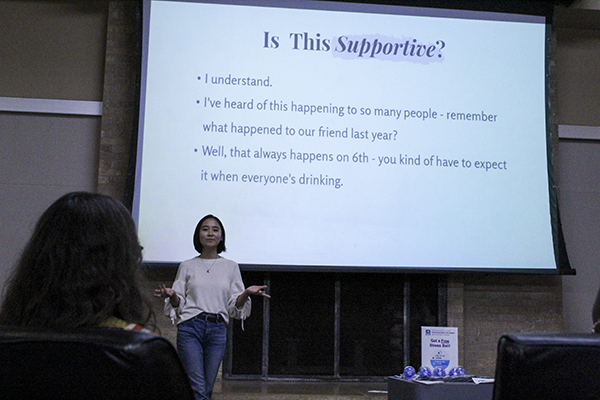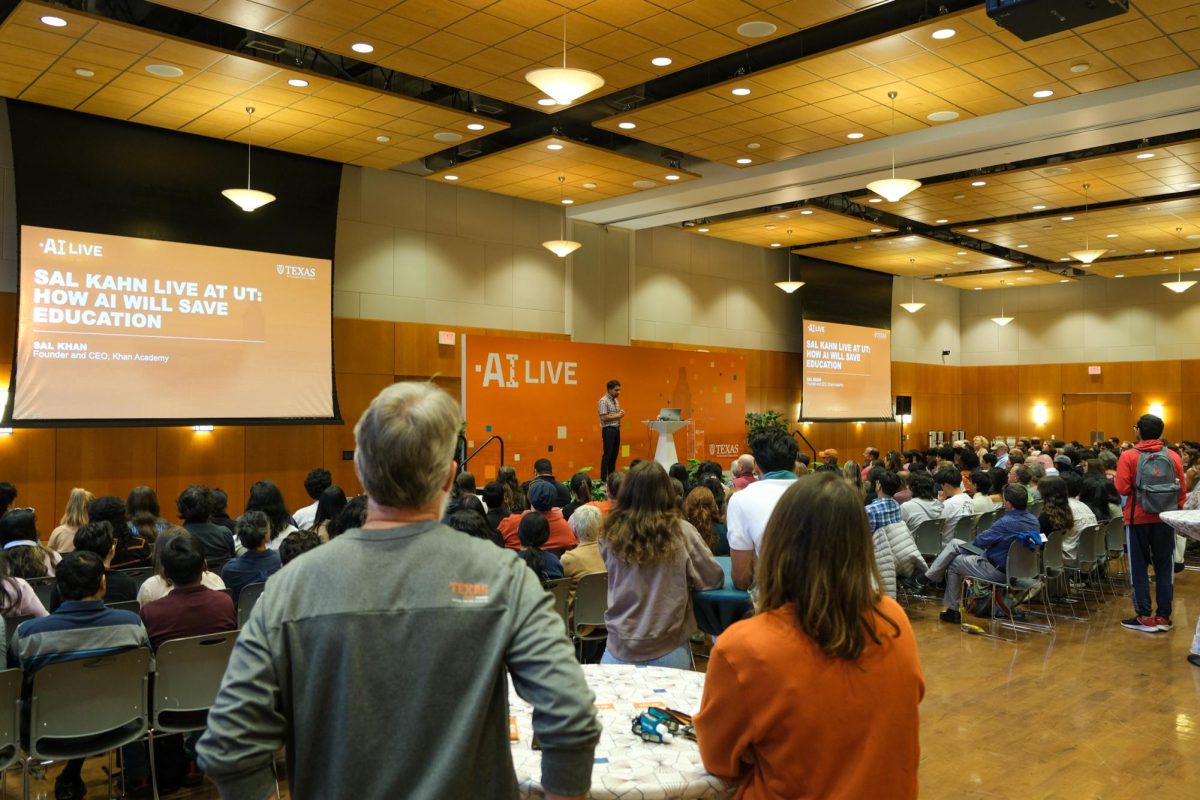Students learned how to help survivors of emotional abuse, sexual assault, stalking and physical abuse in the presentation “How to support a survivor” in Jester West on Wednesday.
Interpersonal Violence Peer Support representatives led the presentation for Relational-Love Wednesday, a part of the Valentine’s-themed “A Week of Love” in Jester West. A group of about eight students trickled into the Jester West lobby to watch the presentation.
“The Interpersonal Violence Peer Support program is a program that started three years ago, and it is a program made up of graduate and undergraduate students who are passionate about interpersonal violence prevention as well as supporting students who have been directly or indirectly impacted by interpersonal violence,” said Angela Kang, a presenter at the event.
The presentation, which biology senior Kang said was created last year, started with defining interpersonal violence. Then it focused on the different reactions to interpersonal violence and how to support a friend or peer who has experienced any form of interpersonal violence.
“Interpersonal violence is often a term that’s thrown around and has a lot of weight, but not a lot of people know what exactly it entails,” said Kang. “So we go over basic definitions and then also talk about what you might run into in terms of situations if your friend has undergone interpersonal violence … and what responses might be appropriate and inappropriate.”
Partway through the presentation, speakers asked attendees about whether common phrases such as “I understand” are actually supportive or not. They also practiced responses in hypothetical scenarios relating to helping those suffering from interpersonal violence.
Claire Tichy, an advertising sophomore and resident assistant who helped organize the event, said the goal of the event was “for people to walk away with more knowledge, more education on the topic and knowing what to say in those situations.”
The event provided mini corn dogs and chicken strips, as well as stress balls for attendees to take home with them. Afterward, program representatives stayed and chatted with attendees and answered questions about the presentation.
“The thing that really stood out to me was the things they say not to do, like a lot of small things you don’t realize you do,” said Morgan Thompson, an international relations and global studies freshman. ”It’s about being there for them and letting them tell you how they feel.”


















